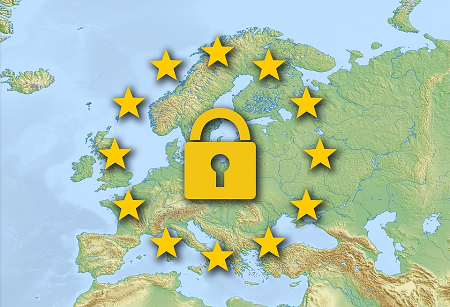Following Mark Zuckerberg’s meeting with the EU Parliament and GDPR coming into force, new research shows that consumers across the UK overwhelmingly describe GDPR as being extremely or very important to them in relation to their digital lives (76%), and just 2% think it has no importance.
The study, from GlobalWebIndex, indicates that 58% want to see companies being held accountable for their actions.
Based on interviews with more than 1,500 consumers, GlobalWebIndex found that 27% of people do not trust companies to handle personal data, without the regulations which over 7 in 10 UK adults are now aware of.
The research reveals:
- While 48% trust social networks with personal data. The likes of Facebook are still playing catch up with online banks/payment services (64%) and online shopping/retail services (65%).
- The fact only 64% trust online banks/payments with their personal data is worrying. With 512M alerts sent to UK consumers last year regarding personal financial updates and 59% 16 to 24 and 69% of 25 to 34 years olds using online banking/payments/apps.
- Interestingly, social media networks are only 5% behind the long-established search engines/ email services in terms of consumer trust with personal data (48% versus 53% respectively).
- 76% describe GDPR as being extremely or very important to them in relation to their digital lives, and only 2% think it has no importance.
- 58% want to see companies being held accountable for their actions. 27% of people do not trust companies to handle personal data
Interestingly, the trust that consumers place in companies to handle their data varies significantly by sector. While 48% trust social networks, the likes of Facebook are still playing catch up with online banks/payment services and online shopping/retail services. Around 2 in 3 consumers have faith in them to handle their data, a reflection of new figures from the British Bankers Association that 59% of 16 to 24 year olds new use banking apps, and 69% of 25 to 34 year olds.
Do you trust the following to handle your personal data?
Online shopping / retail service 65%
Online banking / payment service 64%
Music / video streaming service 58%
Search engine / email service 53%
Social media network 48%
Base: 1,250 UK Internet Users aged 16-64 who are aware of the GDPR. Respondents were asked to select from a 5-point scale where 1= “1. I do trust this service with my personal data” and 5= “I do not trust this service with my personal data”. Figures shown in the chart are for options 1-3 on this 5-point scale.
One chief instigator of change to this ranking will be Facebook. The platform has already rewritten its terms of service and data policies, asking users to select whether they want to continue sharing information such as political and religious views and relationship status. It also asks users to opt in to the company’s use of facial recognition software, used to suggest and alert the use of profiles in pictures.
Jason Mander, Chief Research Officer at GlobalWebIndex, comments: “Privacy concerns have long been widespread across the UK, but to date consumers haven’t always been sure how to manage their personal data effectively. One of the great things about the GDPR is that it now places this burden on companies rather than consumers, and it’s clear that customers from all age groups and all parts of the country have high expectations of what companies should be doing from May 25th onwards.”
